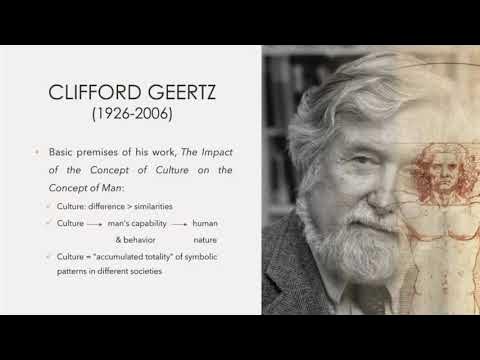An introduction to the discipline of Sociology
Summary
TLDRThis MCAT multimedia series introduces sociology as the study of human societies, exploring why crime, poverty, and everyday actions occur. It emphasizes the sociological imagination to understand the relationship between individuals and society, tracing the discipline's history from its scientific founding to modern studies on social cohesion, norms, and deviance. Influential theorists like Mills, Durkheim, Merton, Goffman, and Foucault are highlighted for their contributions to understanding societal structures, power dynamics, and the impact of societal forces on individual behavior.
Takeaways
- 📚 Sociology is the scientific study of human societies, exploring why certain behaviors and events occur within them.
- 🔎 Sociologists use the 'sociological imagination' to see the broader social causes behind individual actions and personal troubles.
- 👤 The study of sociology moves beyond the individual to consider historical events and social processes that shape behavior.
- 👨🏫 Auguste Comte, the inventor of the term 'sociology,' believed in the scientific study of society and the discovery of laws governing behavior.
- 📈 Émile Durkheim focused on 'social facts' which are external rules that influence behavior, independent of the individual.
- 📊 Durkheim's work in 'Suicide' demonstrated the use of quantitative data to show how social factors influence personal acts like suicide.
- 🤝 Talcott Parsons and Robert Merton contributed to understanding social cohesion and how institutions and norms regulate behavior for societal functioning.
- 🎭 Erving Goffman's 'The Presentation of Self in Everyday Life' likened society to a play where individuals manage impressions, acting and observing.
- 🚫 Studying deviations from the norm, such as deviance, helps sociologists understand how behaviors are labeled and perceived in society.
- 📰 Stanley Cohen's 'Folk Devils and Moral Panics' showed how media sensationalism can create exaggerated societal fears and moral panics.
- 🏥 Michel Foucault argued that power and knowledge are linked, with institutions like prisons influencing societal control through surveillance and categorization.
- 🌏 Edward Said expanded Foucault's ideas, discussing how the West constructs perceptions of the East, enabling colonialism and reinforcing power dynamics.
Q & A
What is the main focus of sociology?
-Sociology is the study of human societies, focusing on understanding why certain behaviors and events occur and how they are influenced by social causes.
What does the term 'sociological imagination' refer to?
-The 'sociological imagination' is a concept introduced by C. Wright Mills, which involves thinking beyond everyday experiences to understand how personal troubles are connected to larger social issues.
What is the role of a sociologist according to C. Wright Mills?
-A sociologist's role, as described by Mills, is to make public issues of what are presented as personal troubles, by understanding the relationship between the individual and society.
Who is considered the inventor of the term 'sociology' and what did he argue?
-Auguste Comte is considered the inventor of the term 'sociology'. He argued that it was possible to study society scientifically and uncover the laws that direct individual behavior.
What did Émile Durkheim define as 'social facts'?
-Émile Durkheim defined 'social facts' as rules that channel behavior and exist independently of the individual, which sociologists should focus on discovering.
How did Durkheim use quantitative data in his study 'Suicide'?
-In 'Suicide', Durkheim used quantitative data to compare suicide rates to religion and marriage rates in different countries, arguing that external factors could account for even the most deeply personal acts.
What was the focus of sociology from the work of Talcott Parsons to Robert Merton?
-The focus of sociology during this period was on understanding how social cohesion can exist despite conflicting interests and how institutions and norms regulated individual behavior to achieve a functioning society.
What strategy did George Herbert Mead and Herbert Blumer use in their sociological studies?
-George Herbert Mead and Herbert Blumer focused on studying the interactions between individuals, a strategy that Irving Goffman pursued to argue that social life consists of the management of impressions.
How did Howard S. Becker approach the study of deviance in his work?
-Howard S. Becker studied marijuana users and dance musicians to understand how some behaviors come to be labeled as deviant, focusing on the social processes that lead to such labeling.
What did Stanley Cohen explore in 'Folk Devils and Moral Panics'?
-In 'Folk Devils and Moral Panics', Stanley Cohen looked at 1960s beachfront riots between mods and rockers to show how sensationalized media coverage creates exaggerated moral panics.
What is the main argument of Michel Foucault in 'Madness and Civilization'?
-In 'Madness and Civilization', Michel Foucault argued that our understandings of mental illness are shaped by the medicalized language that doctors use to talk about it.
How did Edward Said extend Foucault's ideas in his work?
-Edward Said extended Foucault's ideas to argue that the West constructs the East, portraying it as both different and inferior, which in turn enabled and justified European colonialism.
What is the fundamental question that MCAT aims to help students understand through sociology?
-MCAT aims to help students understand not only the world that we have built and live in but also the role of sociologists, the scientists of society, in shaping our understanding of society.
Outlines

このセクションは有料ユーザー限定です。 アクセスするには、アップグレードをお願いします。
今すぐアップグレードMindmap

このセクションは有料ユーザー限定です。 アクセスするには、アップグレードをお願いします。
今すぐアップグレードKeywords

このセクションは有料ユーザー限定です。 アクセスするには、アップグレードをお願いします。
今すぐアップグレードHighlights

このセクションは有料ユーザー限定です。 アクセスするには、アップグレードをお願いします。
今すぐアップグレードTranscripts

このセクションは有料ユーザー限定です。 アクセスするには、アップグレードをお願いします。
今すぐアップグレード5.0 / 5 (0 votes)






